
Since 1927, over 600 films have been nominated for a Best Picture Oscar. I'd estimate we've already forgotten at least half of those movies. Probably more, really. (Come at me in the comments with your best defense of, picking at random, 1941 nominee One Foot in Heaven.) Partially, that's on us since it is a legit challenge to convince the average person to watch old movies, particularly anything in black and white. However, it's also that the Academy is so damn insular and easily swayed by politicking it has a long history of turning a blind eye to the films and filmmakers audiences actually care about. To name but a few examples:
Hitchcock never won an Oscar until a Lifetime Achievement Award which he accepted with a brief "Thank you" before walking off the stage. Citizen Kane - the AFI pick for Best Film of All Time - lost Best Picture to How Green Was My Valley. Countless iconic directors (Scorsese) and actors (Pacino) have won their Oscar for lesser works as a make-up vote for the Oscar they should have won decades earlier. It's only in the last decade that people of color have had a real shot at acting nominations, and we're still waiting to see if any woman other than Kathryn Bigelow will ever win Best Director.
The Academy IS trying. Older, non-active voters have been purged from the voting body, age discrimination lawsuits be damned. Thousands of younger, more diverse and - this part often goes underreported - far more international filmmakers have been invited to join and help tip the scales toward more interesting nominees. A stodgy old institution has evolved into something which has no problem giving Best Picture to a sci-fi fairy tale about a deaf woman and her fishman lover. Populist genre hits ( Black Panther, Joker, Get Out) end up with multiple major nominations. Foreign films ( Roma, Parasite) are now part of the Best Picture conversation. Netflix is no longer shunned on principle.
If judged by recent news cycles, though, the Academy still has a legitimacy problem, the Oscars power as a cultural institution weakened every year that it proceeds with more of the same and proves resistant to change. As such, in this current media environment, every year's list of Oscar nominations turns into a referendum on everything that's wrong with Hollywood, and this year was no different.
Yes, more people of color deserve recognition. Yes, it is beyond obvious that we have a gendered view of what constitutes good directing. (I personally find Greta Gerwig's deft handling of Little Women's two timelines and shifting emotional tones far more impressive than Sam Mendes' technically impressive, but shallow Birdman impression, but the latter is the more muscular, capital F Filmmaking and thus snubbing 1917 for Best Director was never an option.) And, yes, coming off a year where Green Book won Best Picture, cynicism reigns supreme as we retreat into assuming the Academy will get it wrong because it always does.
Controversial opinion though this may be, however, I actually like this year's 9 Best Picture nominees. Most of them, anyway, and the ones I don't particularly stan for still have elements I admire. 2019 was, in my opinion, a fantastic year for film, with monumental blockbusters complemented by plenty of they-don't-make-em-like-that-anymore surprise hits, and the Best Picture nominees reflect that.
1917 has emerged as the frontrunner, and if it does win, well, we've certainly had worse Best Picture winners over the past 30 years. I am not really rooting for it to lose. My personal favorites of the year, Marriage Story and Little Women, appear to have zero momentum for a Best Picture win, and that's ok with me. There are really only a couple of nominees I am rooting against, starting with...
9. Joker
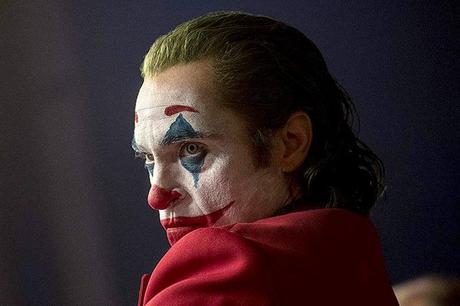
Plus Column: Joaquin Phoenix. Joaquin Phoenix. And did I mention Joaquin Phoenix? Because, stop me if you've heard this one before, he's really quite good. Also, Hildur Guðnadóttir delivered a perfectly unnerving, cello-heavy score.
Minus Column: The inescapable "cosplay Scorsese but with less depth" of it all in addition to all of the hamfisted Batman mythos elements. We didn't need to see the Waynes murdered again. Todd Phillips sure disagreed.
8. Jojo Rabbit
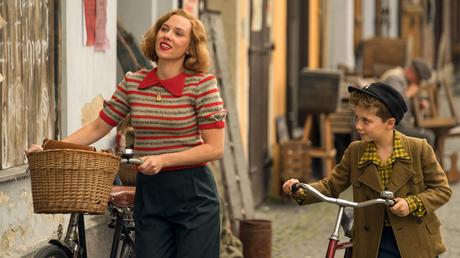
Plus Column: Mostly, the acting. Roman Griffin Davis, Thomasin Mackenzie, and Scarlett Johansson are fantastic as the Nazi Youth, the Jewish girl hiding in his closet, and the German mother walking the tightrope of history. Johansson, in particular, has a standout sequence in which she amuses a pouting Davis by melodramatically playacting both parts of an imagined conversation with her missing husband, and it is a definite "I didn't know she had that in her" moment in terms of stretching her abilities.
Minus Column: Satirizing Hitler feels a bit like a low hanging fruit, using his iconography to lend the story a dramatic weight it doesn't earn, and the "late-stage fascism from a brainwashed child's point of view" leads to several moments where you can feel Taika Waitit trying way too hard to be Wes Anderson.
7. Ford v Ferrari
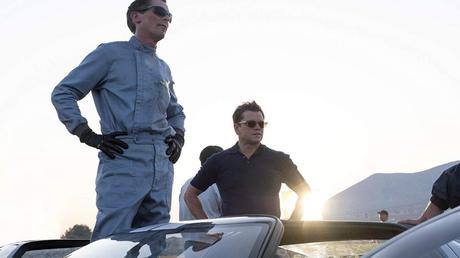
Plus Column: Matt Damon and Christian Bale's believable friendship as racing legends Carroll Shelby and Ken Miles, James Mangold's captivating direction, and a whole technical crew that turned the climactic race sequence into, effectively, a thrilling, kickass car race simulator.
Minus Column: Maybe a bit too dad movie for its own good and does have a rather adversarial relationship with history. That's par for the course with these kinds of things, really, but in Ford v Ferrari when it suddenly becomes very important that Miles might become the first man to ever win three specific races in the same year it's a bit of a problem that one of those races isn't even in the film. It's something Shelby references in passing, and you're excused if you ask, "Wait, what's he talking about?"
6. 1917
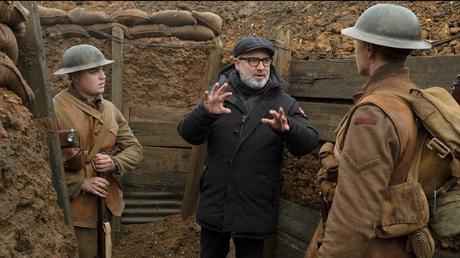
Plus Column: Yes, Birdman did this same damn thing just 5 years ago, but an entire film told in one simulated take is still an impressive achievement, especially when you add in all of the technical challenges of applying that gimmick to a war movie. Roger Deakins' stunning cinematography is up there with his career-best and George MacKay's central performance helps us feel the character's dread every pained, dangerous step of the way. Add it all together and you have a film that feels like a true cinematic experience.
Minus Column: There are far too many deus ex machinas and distracting cameos from famous British actors who show up just to usher the story into its next long oner. Once you reach the end, you feel the exhaustion of the wartime experience but not much else. There's not much of a story here, really. It's a film more interested in executing its central gimmick than telling a meaningful story, and since so much hangs on the gimmick it is tempting to simply look for the seams, all the invisible cuts hidden along the way.
5. The Irishman
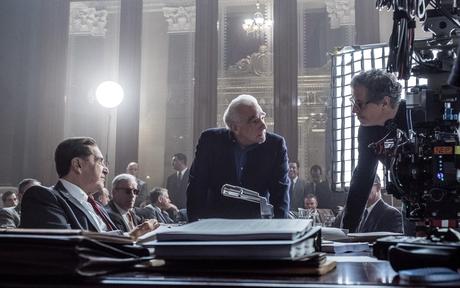
Plus Column: From the opening Steadicam tour through the hospice facility to the sad final close of the door, Scorsese is clearly in his element, engaging in a cinematic conversation with his prior mob movies and asking, "And then what?" What happens when you're a career hitman and somehow end up the last man standing? What does that do to you and your need to atone before dying? Wouldn't you much rather be spending your twilight years in the company of an old pal like Pacino's Jimmy Hoffa, a living meme machine long before that was a thing?
Minus Column: Maybe this means I'm just a basic film fan, but, yes, I do think The Irishman is too long. Beyond that, the de-aging tech is impressive, sure, but not always convincing. ( A YouTuber spent a week with Deepfake tech and came up with something better.) No amount of CGI facelifting, however, can change an actor's gait. You can't make a 70-something Joe Pesci look at all convincing as a 30-something kicking some dude's face in.
4. Once Upon a Time in Hollywood
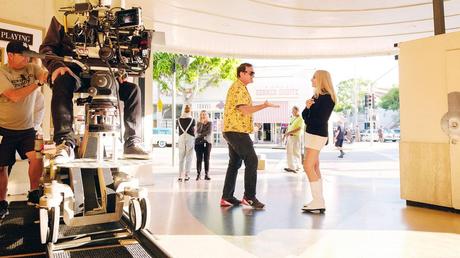
Plus Column: Tarantino's most emotionally mature work to date anchored by surprisingly vulnerable performances from Pitt and DiCaprio and an iridescent Margot Robbie. The production team's recreation of 1969 Los Angeles is so perfect and inviting you don't mind sitting in the back of Pitt's car and watching him drive around town.
Minus Column: Yeah, but he's still Tarantino. Sorry Bruce Lee, history, and the Manson women. Plus, you couldn't have cut a little of Bounty Law to give us more of Tate enjoying her life as a star on the rise?
3. Parasite
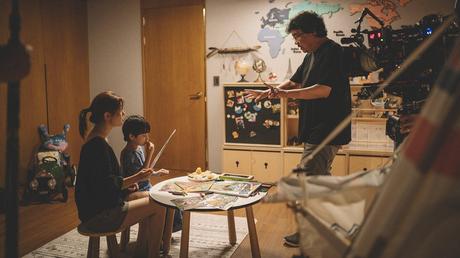
Plus Column: Everything about Parasite rolls along quite smoothly, with expert editing, directing, and acting carrying us through an engaging story about a poor South Korean family conning its way into working for a wealthy family and thus getting to stay, however briefly, in their gorgeous house on a hill. Then the twist happens. The film suddenly switches genres, and the subtext rapidly becomes text. However, you don't find it jarring. Instead, it's more like the film shifts into another gear, one you didn't even know how it had, and from that moment forward you're on a race to destinations unknown. It's a thrilling experience but one that manages to again wallop you in its final moment, delivering a social commentary too rich and moving to be forgotten anytime soon.
Minus Column: The only negative I would associate with Parasite is simply the way Letterboxd and the #Bonghive conspired to so quickly anoint this not just the best film of 2019 but also of the entire decade that an "it's good, sure, but not that good" backlash feels inevitable. That a film would inspire such passion, though, speaks to its strength.
2. Marriage Story
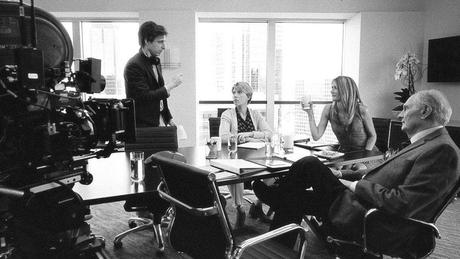
Plus Column: Adam Driver and Scarlett Johansson work with an excellent Noah Baumbach script and Randy Newman score, capturing a couple lowered to their worst selves by vindictiveness and what happens when years upon years of broken communication finally boils over.
Minus Column: I'd be inclined to point to relatability concerns since this is a very East Coast/West Coast story about an actress, her director husband, and their expensive divorce lawyers. However, the amount of "I cried four times" or "I watched this with my spouse, and then we had the biggest fight of our relationship" Twitter stories indicates the emotional truths explored in the story are quite universal.
1. Little Women
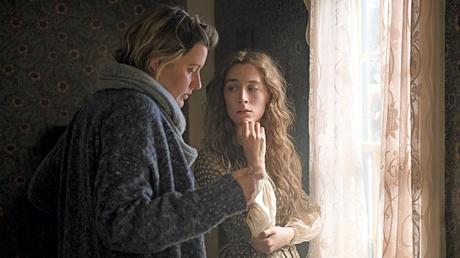
Plus Column: The perfect cast, perfect script, and perfect director - Gerwig's Little Women breathes new life into Louisa May Alcott's words by honing in on the timeliness in the story. It's both fascinating and horrifying that the same prejudices Alcott faced as a female creator persist over a century later, and Gerwig's stroke of genius is to use Jo's pitch meeting - which Alcott based on her own experiences - as the framing device of the story. Moreover, Gerwig clearly grew up a Jo but is now old enough to really understand Meg and Amy, what compromise and adulthood both looks and feels like, and she brings that maturity to Little Women.
Minus Column: Is it maybe just a tad too easy to walk away from Little Women and not totally realize the climax - in which Jo is shown to achieve multiple happy endings, not all of them necessarily real - holds multiple meanings and interpretations? Eh. I'm really just scraping for some content here since I locked myself into this whole "plus column/minus column" format. In truth, I think of Little Women as a masterpiece.
How would you rank this year's nominees? Let me know in the comments.

